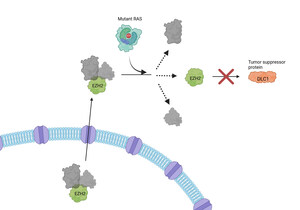What Parents Should Know about Cancer and the HPV Vaccine
By the National Cancer Institute
BETHESDA, Md., Jan. 29, 2013 /PRNewswire-USNewswire/ --We can vaccinate our children against polio, against measles, against the flu. And more recently a vaccine has become available that lets parents give their children a new leg up against disease—a vaccine to prevent some types of cancer.
(Logo: http://photos.prnewswire.com/prnh/20110316/MM66939LOGO)
Although cancer isn't contagious—no one can "catch" cancer from a relative, friend, or neighbor—a virus called human papillomavirus (HPV) causes cervical cancer and some other cancers. HPV is the most common sexually transmitted infection in the United States. Most HPV infections go away on their own, but long-lasting infections with certain HPV types can lead to cancer.
The good news is that vaccines are available that prevent infection with the HPV types that cause most cervical cancers and other HPV-associated cancers. Vaccination against HPV is especially important for African Americans and Latinos, because these communities suffer from a higher rate of cervical cancer than other populations.
Two HPV vaccines are on the market, Gardasil® and Cervarix®; both are administered in three doses over the course of 6 months. Both vaccines prevent infection with the two most important cancer-causing types of HPV, and Gardasil® also prevents infection with the HPV types that cause most genital warts. Girls can get either vaccine, but only Gardasil® can be given to boys. Current federal recommendations call for vaccination of children 11 to 12 years of age (although girls as young as 9 can get the vaccine, as can older boys and girls and young adults who have not previously been vaccinated).
Some parents may feel uncomfortable giving their children an HPV vaccine because the vaccine is used to prevent a sexually transmitted infection. Many parents are understandably hesitant to even think about their children being sexually active. However, the vaccines need to be given before infection with HPV in order to prevent cancer, so it is important that your child be vaccinated before he or she becomes sexually active. Your child's doctor can give you more information about HPV vaccine options and timing.
Although researchers have made some amazing progress in reducing cancer deaths, the recently released Annual Report to the Nation on the Status of Cancer shows that cases of some cancers related to HPV have continued to rise. The report's authors also note that too few American girls are getting the HPV vaccine. January is Cervical Cancer Awareness Month—a good time to learn more about vaccination opportunities for your children.
For more information about the HPV vaccine and cervical cancer, you can visit http://www.cancer.gov/cancertopics/factsheet/Prevention/HPV-vaccine
http://cancer.gov/espanol/recursos/hojas-informativas/prevencion/vacuna-VPH (Spanish)
http://www.cancer.gov/cancertopics/wyntk/cervix
http://www.cancer.gov/espanol/tipos/necesita-saber/cervix (Spanish)
SOURCE National Cancer Institute
WANT YOUR COMPANY'S NEWS FEATURED ON PRNEWSWIRE.COM?
Newsrooms &
Influencers
Digital Media
Outlets
Journalists
Opted In






Share this article